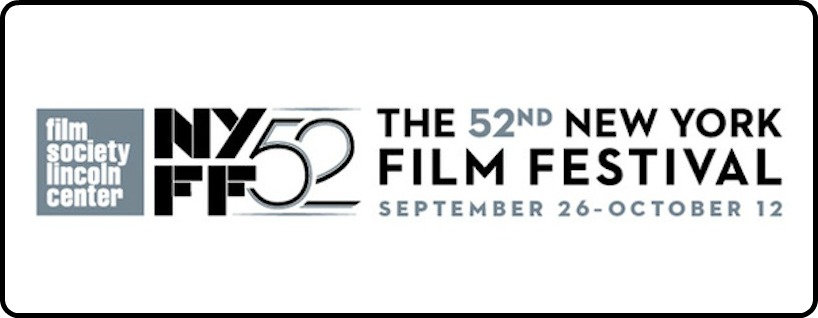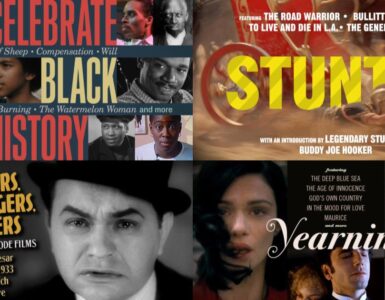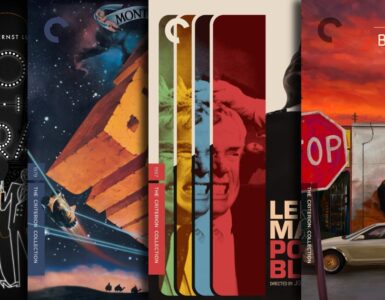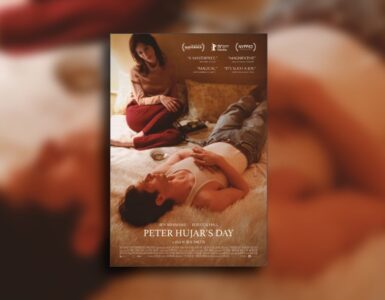
Aside from the incredible Opening, Centerpiece, and Closing Night selections (David Fincher’s Gone Girl, Paul Thomas Anderson’s Inherent Vice, and Alejandro Gonzalex Iñárritu’s Birdman, respectively), the Film Society of Lincoln Center just announced the Main Slate selection for this year’s New York Film Festival and it does not disappoint.
The 30 features in the Main Slate also happen to feature some Criterion Collection heavy hitters as well. Below is the complete Criterion-related list:
Gone Girl
David Fincher, USA, 2014, DCP, 150m
David Fincher’s film version of Gillian Flynn’s phenomenally successful best seller (adapted by the author) is one wild cinematic ride, a perfectly cast and intensely compressed portrait of a recession-era marriage contained within a devastating depiction of celebrity/media culture, shifting gears as smoothly as a Maserati 250F. Ben Affleck is Nick Dunne, whose wife Amy (Rosamund Pike) goes missing on the day of their fifth anniversary. Neil Patrick Harris is Amy’s old boyfriend Desi, Carrie Coon (who played Honey in Tracy Letts’s acclaimed production of Who’s Afraid of Virginia Woolf?) is Nick’s sister Margo, Kim Dickens (Treme, Friday Night Lights) is Detective Rhonda Boney, and Tyler Perry is Nick’s superstar lawyer Tanner Bolt. At once a grand panoramic vision of middle America, a uniquely disturbing exploration of the fault lines in a marriage, and a comedy that starts black and keeps getting blacker, Gone Girl is a great work of popular art by a great artist. A 20th Century Fox and Regency Enterprises release.
The Blue Room / La chambre bleue
Mathieu Amalric, France, 2014, DCP, 76m
A perfectly twisted, timeless noir, Mathieu Amalric’s adaptation of Georges Simenon’s domestic crime novel also tips its hat to Alfred Hitchcock/Patricia Highsmith’s Strangers on a Train. A country hotel’s blue room is the scene of erotic rapture, but the adulterous man (Amalric) and woman (a boldly sexual Stéphanie Cléau, co-author of the script with Amalric) who meet there have different visions of their future. She is more obsessed than he, and his misunderstanding of the madness in her desire will destroy him and all he holds dear. Amalric’s direction is brutally spare, as is his performance of a man caught in a vise—a situation of his own making. The classic aspect ratio (1:33) and Grégoire Hetzel’s turbulent, insistent score heighten the sense of entrapment. Léa Drucker as the deceived wife and Cléau as the desperate mistress make strong impressions, but Amalric, who has the most eloquent eyes in contemporary cinema and uses them here to convey lust, guilt, bewilderment, and the dawning realization that he is a pawn in a malignant game, is unforgettable. A Sundance Selects release.
Clouds of Sils Maria
Olivier Assayas, Switzerland/Germany/France, 2014, DCP, 124m
Maria Enders (Juliette Binoche) is a middle-aged actress who soared to stardom in her twenties in a play called Maloja Snake, in which she created the role of a ruthless young woman named Sigrid who engages in a power game with her older boss. Now an established international actress, Maria is considering the role of the older woman in a heavily promoted revival, with an infamous young superstar (Chloë Grace Moretz) as Sigrid. Maria and her savvy personal assistant (Kristen Stewart) prepare for the production at a secluded spot in the Swiss Alps, in a series of stunning scenes that are the beating heart of Olivier Assayas’s brilliant new film. What begins as a chronicle of an actress going through the paces of celebrity culture (fashion shoots, official dinners, interviews, Internet rumors) gradually develops into something more powerfully mysterious: a close meditation on time and how one comes to terms with its passage. An IFC Films release.
Goodbye to Language / Adieu au langage
Jean-Luc Godard, France, 2014, DCP, 70m
The 43rd feature by Jean-Luc Godard (and the only film at the 2014 Cannes Film Festival to get a round of applause mid-screening), Goodbye to Language alights on doubt and despair with the greatest freedom and joy. At 83, Godard works as a truly independent filmmaker, unencumbered by all concerns beyond the immediate: to create a work that embodies his own state of being in relation to time, light, color, the problem of living and speaking with others, and, of course, cinema itself. The artist’s beloved dog Roxy is the de facto “star” of this film, which is as impossible to summarize as a poem by Wallace Stevens or a Messiaen quartet. Goodbye to Language was shot, and can only be truly seen and experienced, in 3-D, which Godard has put to wondrous use. The temptation may be strong to see this film as a farewell, but this remarkable artist is already hard at work on a new project. A Kino Lorber release.
Horse Money / Cavalo Dinheiro
Pedro Costa, Portugal, 2014, DCP, 103m
Since the late ’90s, Pedro Costa has devoted himself to the task of doing justice to the lives and tragedies and dreams of the Cape Verdean immigrants who once populated the now-demolished neighborhood of Fontainhas. Costa works with a minimal crew and at ground level, patiently building a unique cinematographic language alongside the men and women he has befriended. Where does his astonishing new Horse Money “take place”? In the soul-space of Ventura, who has been at the center of Costa’s last few shorts and his 2006 feature Colossal Youth. It is now, a numbing and timeless present of hospital stays, bureaucratic questioning, and wandering through remembered spaces… and it is then, the mid ’70s and the time of the Carnation Revolution, when Ventura got into a knife fight with his friend Joaquim. A self-reckoning, a moving memorialization of lives in danger of being forgotten, and a great and piercingly beautiful work of cinema.
Life of Riley / Aimer, boire et chanter
Alain Resnais, France, 2014, DCP, 108m
Adapted from Alan Ayckbourn’s Relatively Speaking, Life of Riley, the final work by Alain Resnais, is the story of three couples in the English countryside who learn that their close mutual friend is terminally ill. Yet the story is only half the movie, a giddily unsettling meditation on mortality and the strange sensation of simply being alive and going on, feeling by feeling, action by action. The swift, fleeting encounters between various combinations of characters (played by Resnais regulars André Dussollier and Sabine Azéma—the director’s wife—along with Michel Vuillermoz, Hippolyte Girardot, Sandrine Kiberlain, and Caroline Silhol) take place on extremely stylized sets, and they are punctuated with close-ups set against comic-strip grids, and broken up by images of the real English countryside. Funny but haunting, Life of Riley is a moving, graceful, and surprisingly affirmative farewell to life from a truly great artist. A Kino Lorber release.
Maps to the Stars
David Cronenberg, Canada/Germany, 2014, DCP, 111m
David Cronenberg takes Bruce Wagner’s script—a pitch-black Hollywood satire—chills it down, and gives it a near-tragic spin. The terrible loneliness of narcissism afflicts every character from the fading star Havana (Julianne Moore, who won the Best Actress Award at Cannes for her nervy performance) to the available-for-anything chauffeur (Robert Pattinson) to the entire Weiss family, played by John Cusack, Olivia Williams, Evan Bird, and Mia Wasikowska. The last two are brother and sister, damaged beyond repair and fated to repeat the perverse union of their parents. And yet, in their murderous rages, they have the purity of avenging angels, taking revenge on a culture that needs to be put out of its misery—or so it must seem to them. Cronenberg’s visual strategy physically isolates the characters from one another, so that their occasional violent connections pack a double whammy. An eOne Films release.
Mr. Turner
Mike Leigh, UK, 2014, DCP, 149m
Mike Leigh’s Mr. Turner is certainly a portrait of a great artist and his time, but it is also a film about the human problem of… others. Timothy Spall’s grunting, unkempt J.M.W. Turner is always either working or thinking about working. During the better part of his interactions with patrons, peers, and even his own children, he punches the clock and makes perfunctory conversation, while his mind is clearly on the inhuman realm of the luminous. After the death of his beloved father (Paul Jesson), Turner creates a way station of domestic comfort with a cheerful widow (Marion Bailey), and he maintains his artistic base at his family home, kept in working order by the undemonstrative and ever-compliant Hannah (Dorothy Atkinson). But his stays in both houses are only rest periods between endless and sometimes punishing journeys in search of a closer and closer vision of light. A rich, funny, moving, and extremely clear-eyed film about art and its creation. A Sony Pictures Classics release.
Pasolini
Abel Ferrara, France/Belgium/Italy, DCP, 87m
Pier Paolo Pasolini—filmmaker/poet/novelist, Christian, Communist, permanent legal defendant, and self-proclaimed “inconvenient guest” of modern society—was an immense figure. Abel Ferrara’s new film compresses the many contradictory aspects of his subject’s life and work into a distilled, prismatic portrait. We are with Pasolini during the last hours of his life, as he talks with his beloved family and friends, writes, gives a brutally honest interview, shares a meal with Ninetto Davoli (Riccardo Scamarcio), and cruises for the roughest rough trade in his gun-metal gray Alfa Romeo. Over the course of the action, Pasolini’s life and his art (represented by scenes from his films, his novel-in-progress Petrolio, and his projected film Porno-Teo-Kolossal) are constantly refracted and intermingled to the point where they become one. A thoughtful, attentive, and extremely frank meditation on a man who continues to cast a very long shadow, featuring a brilliant performance by Willem Dafoe in the title role.
Time Out of Mind
Oren Moverman, USA, 2014, DCP, 117m
We are in an apartment from which the tenant has been evicted. Junk is piled everywhere. A man, sleeping in the bathtub, is awoken by the maintenance crew. He is forced onto the streets, and into a series of realizations that gradually materialize over the unending days that stretch to infinity: that he must find clothing to cover himself, food to eat, liquid to drink, a bed to sleep in. And we are simply with him, and with the sound and movement of the city that engulfs him and makes him seem smaller and smaller. As George, Richard Gere may be the “star” of Oren Moverman’s new film, but he allows the world around him to take center stage, and himself to simply be: it’s a wondrous performance, and Time Out of Mind is as haunting as a great Bill Evans solo. With lovely work by Ben Vereen as George’s one and only friend and Jena Malone as his estranged daughter.
Two Days, One Night / Deux jours, une nuit
Jean-Pierre & Luc Dardenne, Belgium/France/Italy, 2014, DCP, 95m
The action is elemental. The employees in a small factory have been given a choice. They will each receive a bonus if they agree to one of them being laid off; if not, then no one gets the bonus. The chosen employee (Marion Cotillard) spends a weekend driving through the suburbs and working-class neighborhoods of Seraing and Liège, knocking on the doors of her co-workers and asking a simple but impossible question: will you give up the money to let me continue to earn my own living? The force of Jean-Pierre and Luc Dardenne’s new film lies in the intensity with which they focus on the second-by-second toll the situation takes on everyone directly affected, while the employers sit at a benign remove. In Two Days, One Night, the Dardennes take an urgent and extremely relevant ethical inquiry and bring it to bold and painfully human life. A Sundance Selects release.
And that doesn’t even begin to scratch the surface. Among the non-Criterion related films playing, I’m most looking forward to Bennett Miller’s Foxcatcher, Hong Sang-soo’s Hill of Freedom, and Mia Hansen-Løve’s Eden. What is everybody else itching to see immediately?
For a full list of all the Main Slate selections, visit the NYFF website here. Be sure to check back at CriterionCast for more NYFF52 news!





